Welcome to another issue of The Newport Cornucopia where we dig through the newspapers archives for interesting news articles and adverts. All articles are posted verbatim and most headlines are original (headlines in quotes are my own).

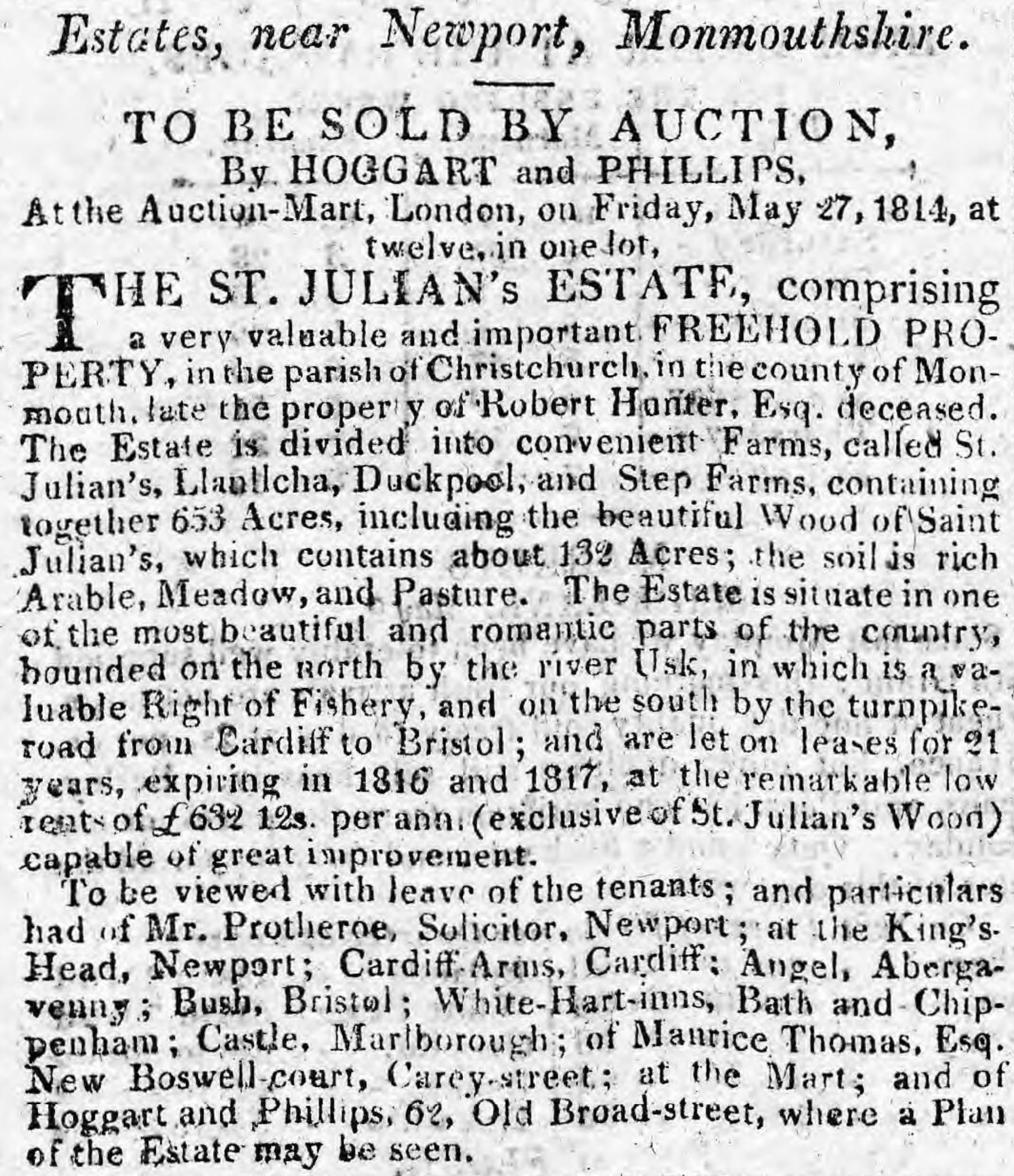

'For Sale: Lime Kilns Near Newport Bridge'

On the tithe maps from around 11 or 12 years after the advert was published, there was a limekiln and brickyard on the site of where the coffee shops on the other side of the Newport City Footbridge are today.
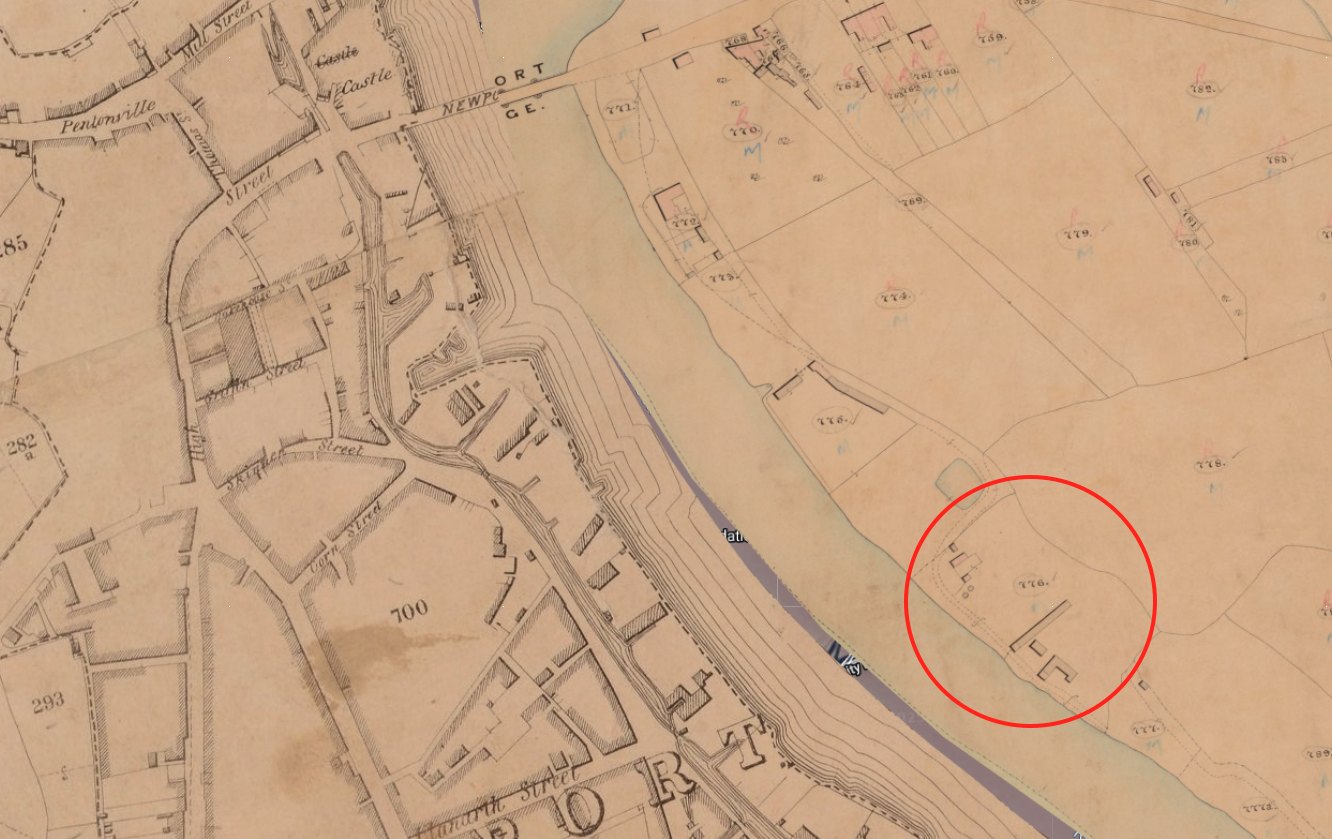

The Ragged Fringes of Newport
At the monthly meeting of the Newport County Council a chorus of complaints about the condition of suburban and other roads, were made about the ragged fringes of the borough. Mr Williams grew eloquent about the awfulness of Corporation-road, and was observing that the Press had noticed it when the Mayor interjected: Never mind about the Press, Mr Williams; come to the point.
Alderman Lyne: He thinks it a pressing question. (Laughter)
Mr Cordey wanted the Works Committee to saunter out to Brynglas-road another gentleman desired private road near the new Intermediate Schools ameliorated to some reasonable extent; whilst Mr Wilkinson, discovering that all the cry was in favour of the upper portion of the town, rose to plead on behalf of the lower part of Newport.
The Mayor: Which side of the river?
Mr Wilkinson: Both sides of the river. (laughter) —Alexandra-road, Mendalgief-road, and the lower part of Commercial-road.
Tbe Mayor: The committee will take note of what you say gentlemen.
— South Wales Echo, 8th December, 1896

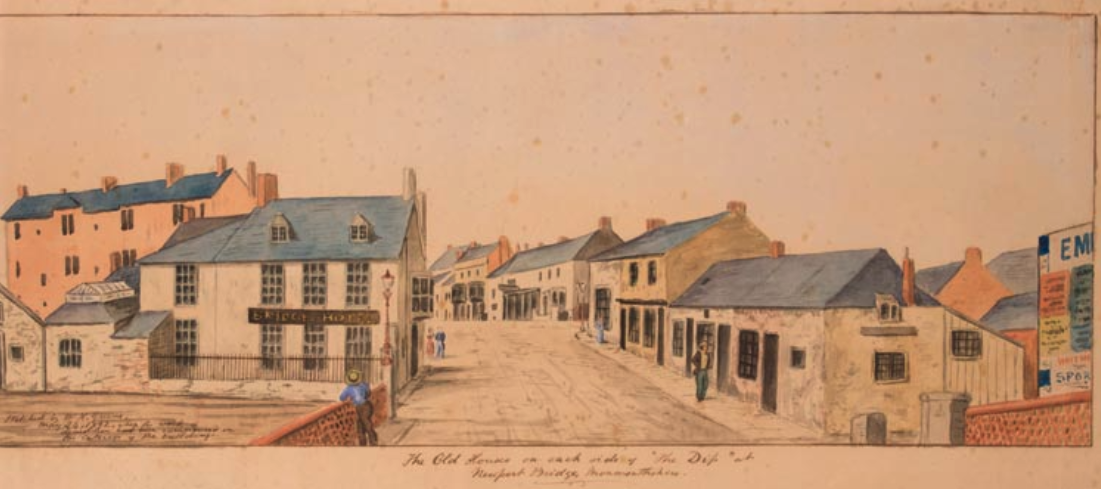

The Late Storms
During the severe gales which prevailed in the early part of the week, the effects of which we are sorry to perceive by several accounts, have been calamitous to sea-faring men in various quarters, much injury has been done to shipping in our port— several vessels broke from their moorings, and were more or less damaged, others put in with loss of bow-sprits, injury to rigging, &c.
On Tuesday morning, the tide at Newport flowed higher than any that has been remembered for many years-all the low lands were inundated. Even beyond Newport bridge the grounds, gardens, and the high road were flooded, and we are sorry to learn that a considerable number of sheep were drowned in the marshes. In the extreme fury of the gale, many families left the upper parts of their houses, in momentary apprehension of the chimneys being blown down but we have not heard of any accident of this description except in two instances, and those fortunately without causing any personal injury.

A small house, near completion, erected by an honest and industrious mechanic, named Dando, situated on the Pill road, was partially destroyed, and the roof of a house, at Pill, was forced in by the fall of the chimney. During the gusts of wind, persons passing through the streets were frequently obliged to grasp some protecting object in order to prevent being blown down. On Sunday morning last, the Bristol Trader, George, Captain Johns, left our river's mouth, bound to Bristol! After proceeding a short distance, her mast was carried away by the severity of the gale, and there is no doubt but she would have been a complete wreck, but for the prompt and kind assistance of the Bristol Trader, Mary, Capt. Tivers, who got a hawser on board, and towed the George safe into Bristol river.
Great credit is due to Capt. Tivers for his efficient exertions in this case, and it may be further observed with praise, that when the owner of the Mary was asked what he expected for the assistance rendered, he answered, not a farthing—as it was only a friendly action, such as his own vessel might, some time or other, stand in need of.
— Monmouthshire Merlin, 15th October, 1836


'Rabid Dog'
On Monday last, two children, one nine and the other two years old, who were bitten by a dog, supposed to be rabid, were "dipped" under the Newport Bridge, as an infallible remedy against hydrophobia!
— Monmouthshire Merlin, 18th August, 1838

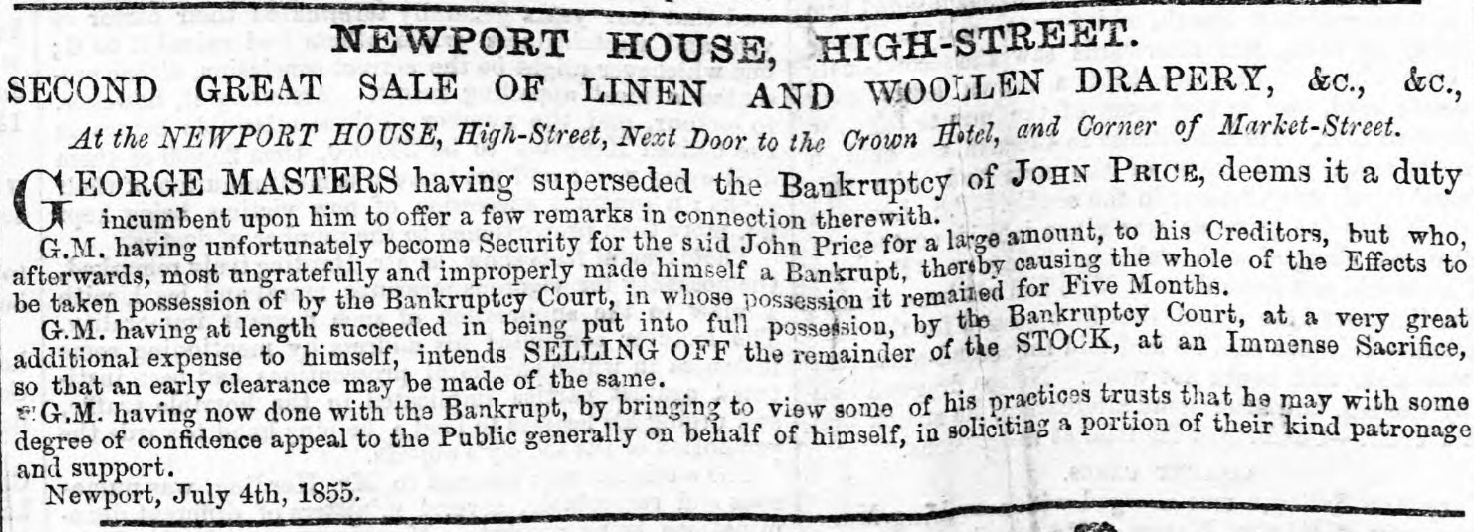

'Herbert's Wonderful Dogs'
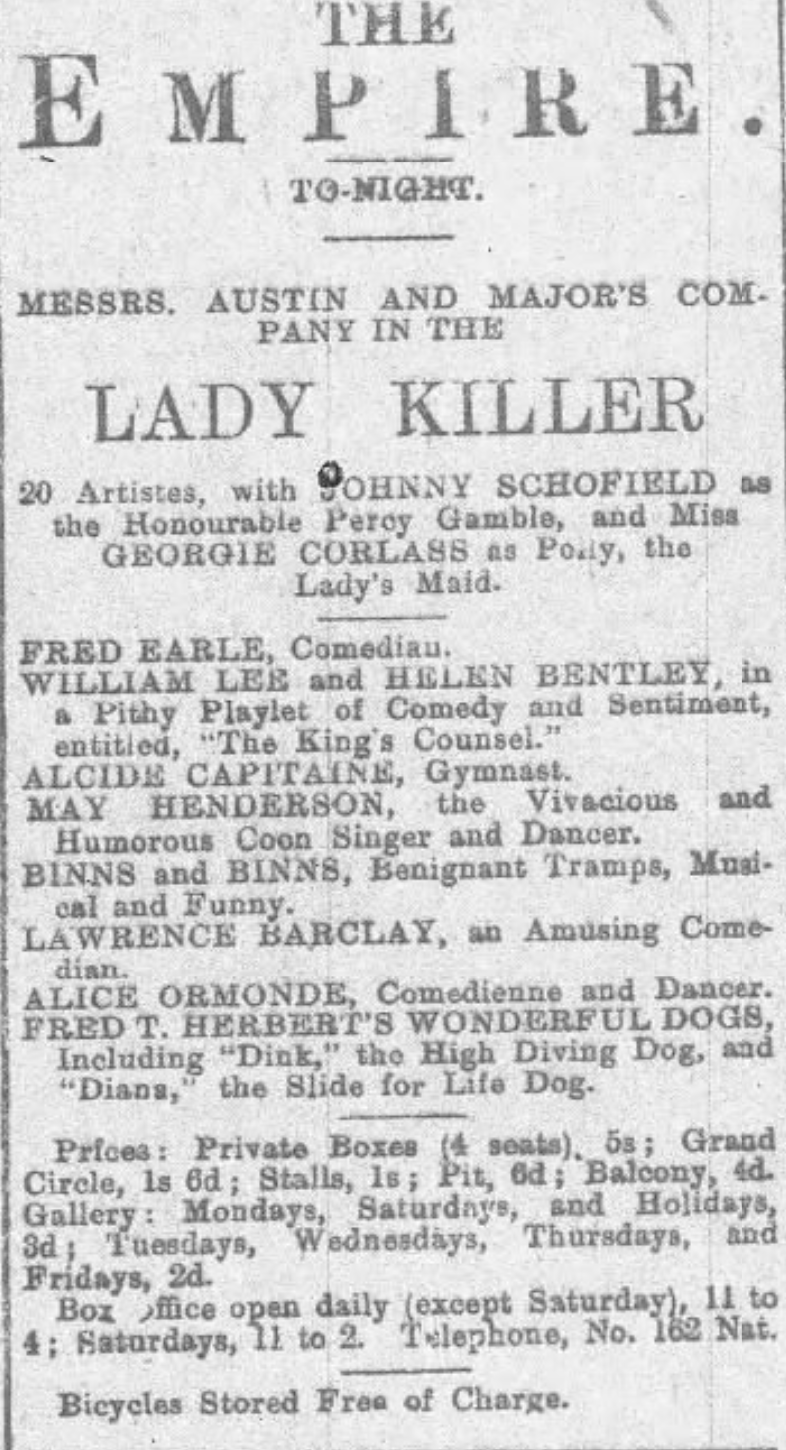
At The Empire on 3rd October, 1903 was Fred T. Herbert's Wonderful Dogs which was a troupe of performing dogs featuring Dinks the High Diving Dog and Diana the 'Slide for Life Dog'.



'Found with a Block of Wood'
Lewis Lewis and William Lewis, apparently father and son, were charged with having a block of wood in their possession, of which they could give no satisfactory account.— o owner came forward to prosecute, and the elder prisoner was advised not to pick up things that didn't belong to him: they were both discharged.
— Monmouthshire Merlin, 26th December, 1846
Plucking a Bold Dragoon
Martha Ashton was charged with having stolen from Private Charles Sefton, of the 1st Dragoon Guards, stationed here, the sum of £16., two silk handkerchiefs, and a book. It appeared that prosecutor had lately received a bequest of money, which he had gone the other side of the water to receive, and on his return, had become acquainted with the prisoner.
On arriving at Newport, he accompanied her to her house in Friars' Fields, where he was robbed while asleep, but he could not swear by whom, though he certainly suspected the prisoner. Remanded to Thursday.
On Thursday...
Martha Ashton and Elizabeth Smith were charged with steal. ing £16., &c., from the Guardsman Sefton—the former remanded from Monday, and the latter since apprehended. The evidence against them was so inconclusive, that they were dis- charged.
— Monmouthshire Merlin, 26th December, 1846
Smashing of Newport Lamps
The public lamps in many of the streets of Newport are targets for the juvenile residents, in some cases the whole lamps in a street being smashed by the missiles thrown by the juveniles.
In Mendalgief-road, leading from Cardiff-road to the Alexandra Docks, 51 panes of glass have been demolished within three weeks. Five youngsters named August Tucker, Thomas Evans, Edwin Smith, Win. Tompkins, and Ernest Turbervilie appeared at the police-court to answer a summons for throwing stones in Mendalgief-road. The youngsters were caught in the act of throwing at a lamp, and one sheet of glass was smashed in the presence of the witness. The Bench fined the lads 2s 6d each.
— South Wales Echo, 17th July, 1893
A Street Walker
Bridget Callahan, a woman of questionable character, was charged with being in the streets at three o'clock on Sunday morning. P.C. Jenkins stated that persons of prisoner's class had greatly increased in number of late, and that there was consequently much difficulty in keeping the streets clear. Callahan and two other girls who were similarly charged, but had not been previously at court, were discharged with a caution.
— Monmouthshire Merlin, 4th July 1855
'Blue Skin'
James Cockayne and James Buckley, two itinerant showmen whose wondrous attractions consist of a little fat pig, and a big fat woman, were charged with causing an obstruction at Pill by occupying the road and pavement with their exhibition. Mr Ford, whom some call "Blue Skin," proved the nuisance, and said the music of the concern had greatly alarmed his timid wife. She was not of the class whom "Music hath charms to soothe."

The showman said Mr. Jones, agent to the Tredegar Wharf Company, had given them leave to occupy the piece of ground upon which their caravan stood and they did not know they were doing wrong. As to the music of their band being alarming — Jullien's or Straus's bands were nothing in comparison to them and with respect to obstruction or nuisance, they could get every man, woman, and child in Pillgwenlly to prove Ford alias Blue Skin, the greater nuisance or annoyance of the two exhibitions. The Bench, understanding that defendants had acted under mistake, fined them 1s., and 8s. costs each.
— Monmouthshire Merlin, 5th May, 1849

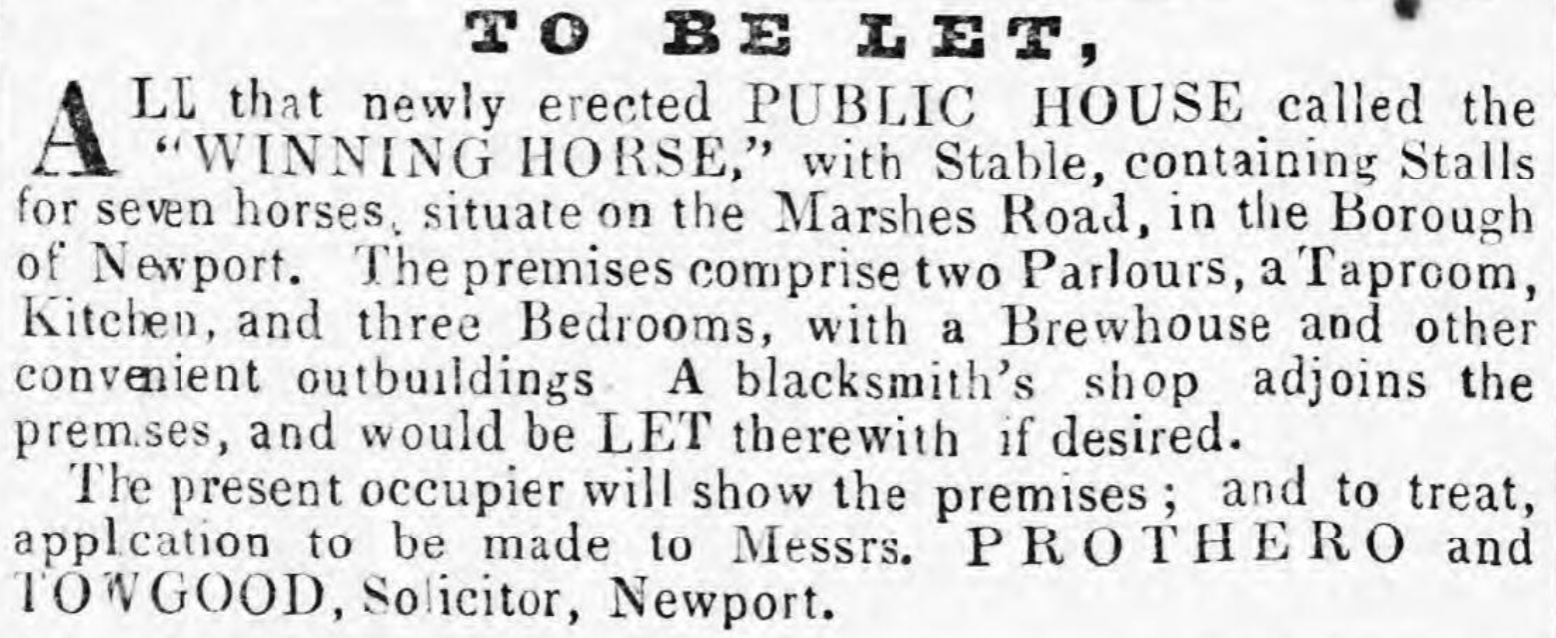

Newport Bridge
To the Editor of the Monmouthshire Merlin.
SIR,—The readiness you always evince in forwarding, any measure tending to the improvements Newport, convince me that you will afford me a small space in your next publication, to draw the attention of the parties able to apply a remedy to the present insecure state of the thoroughfare, for foot passengers, over Newport Bridge — in itself a noble structure, and when built about half-a-century back, more than equal to the probable wants of the public; but now, in consequence of the increased and fast increasing traffic of the place, not affording sufficient accommodation. In the roadway, there is only room for two carriages to pass each other, and the footpath on each side is scarcely sufficient for two persons to walk abreast, so that when carriages or cattle are passing over the bridge, children and infirm persons run great risk of serious accidents.
I am told that yesterday an heifer, actually leaped over the parapet wall into the river.
The remedy I would suggest would be to devote the whole of the present road and footways to the passage of cattle and carriages, and to throw out on each side of the present parapets a footpath of four or five feet wide, with an iron balustrade, calculated to injure the effect of the present proportions of the bridge as little as possible. Perhaps some of your readers will point out a more eligible plan, but I think that the convenience, and indeed the safety, of the inhabitants, imperatively require something to be done.
Your most obedient servant,
Newport, Oct. 2nd, 1845.
AN INHABITANT.
— Monmouthshire Merlin, 4th October, 1845
Attempted Suicide by a Cow
On Wednesday last, a fine cow was being driven over Newport Bridge to our markets on reaching about the centre, having, perhaps, some prescience of the fate that awaited it, it looked round rather wildly, perceived a certain fat butcher approaching, and, with a sudden bound, absolutely cleared the parapet, in line sporting style, and, unhurt, reached the waters of the Usk, fortunately, as the tide began to ebb. A boat was instantly manned and put off from one of our steamers, and a rope was soon thrown round the horns and head of the animal, which, after some short time, was safely hauled ashore. We understand that a promise of beef-steaks only was the reward of the active sailors from the owner of the animal.
— Monmouthshire Merlin, 4th October, 1845



Villetta
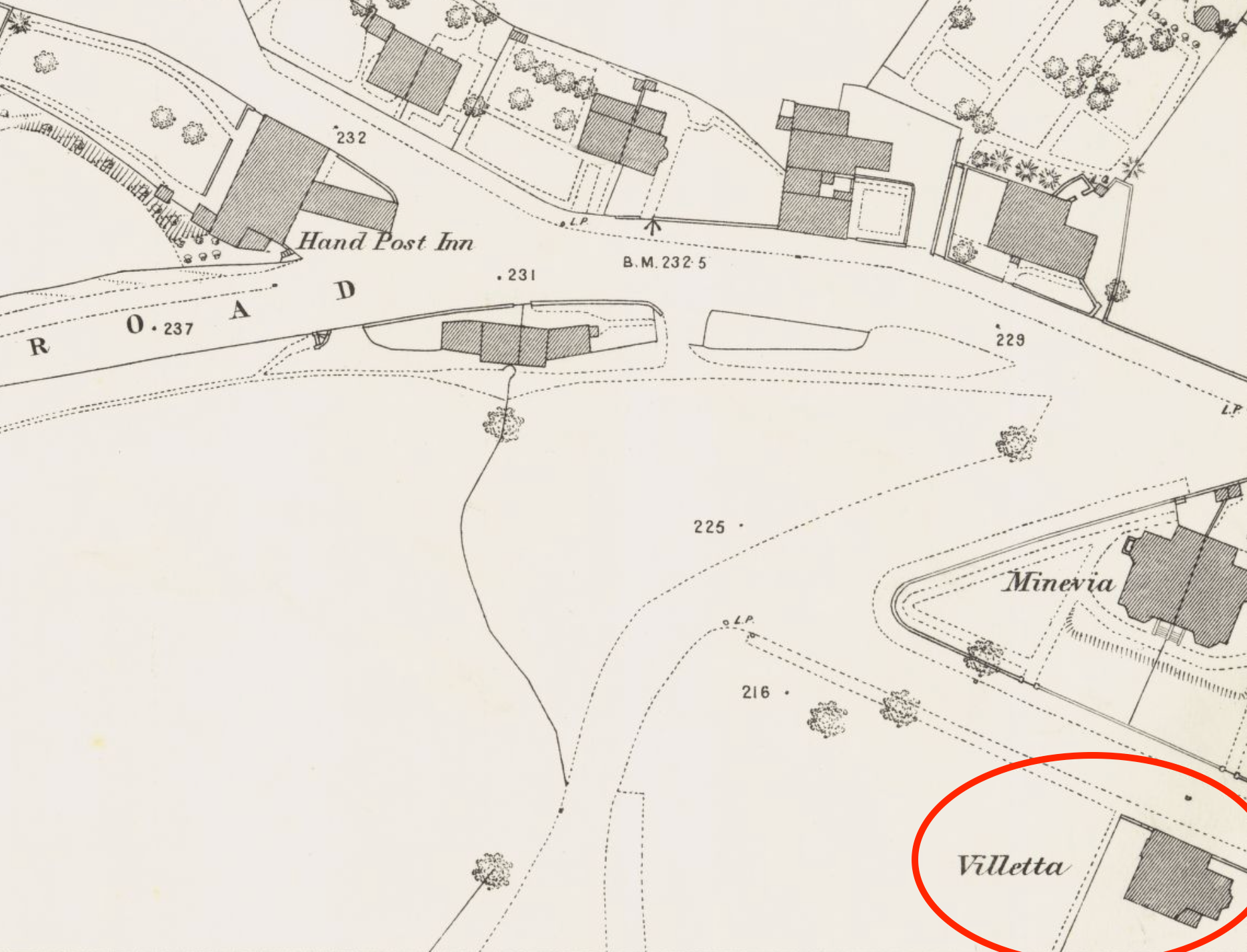
I spend a lot of time scanning old maps looking for anything interesting and like to see if houses that are displayed still exist and still retain the same name.
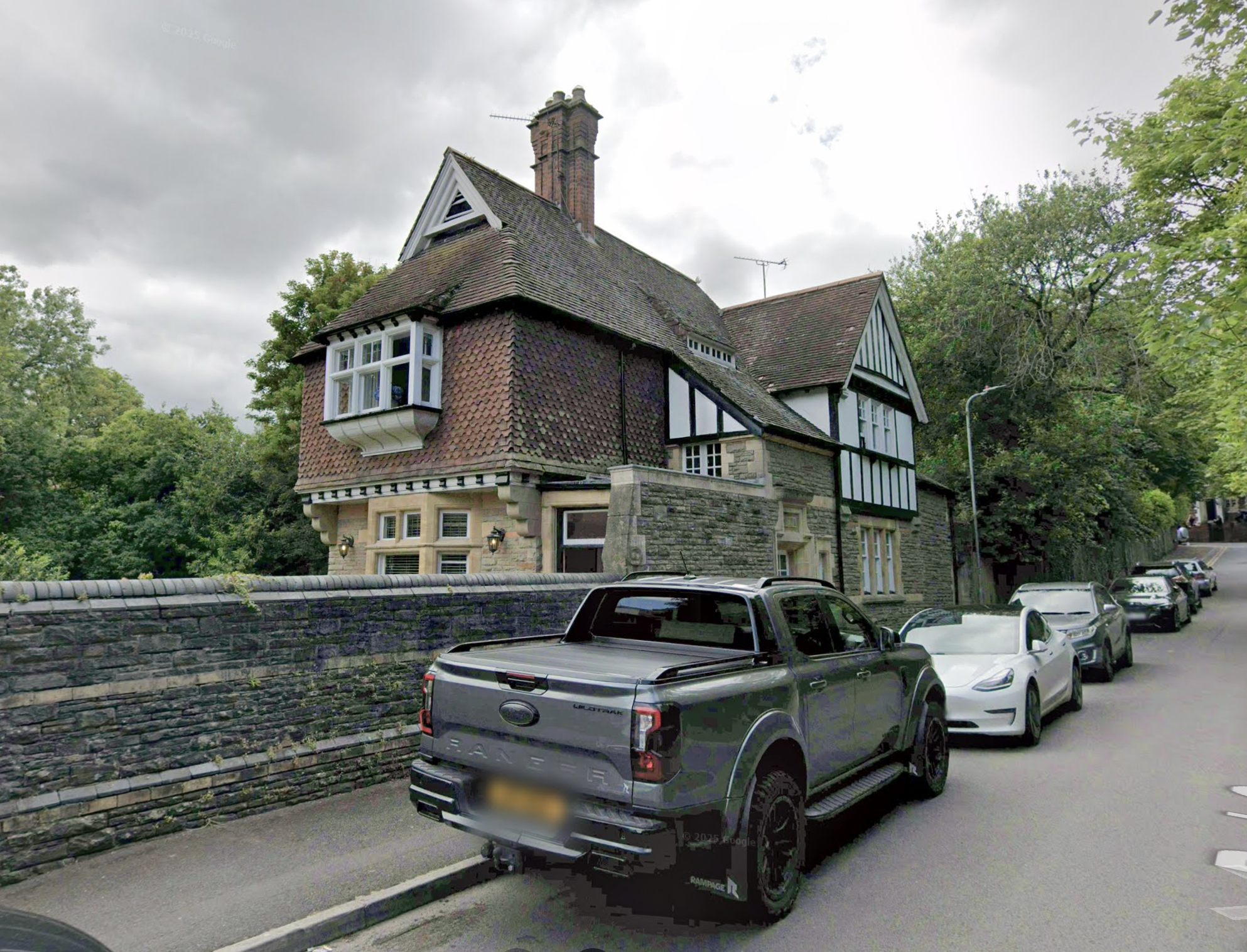
Villetta still retains it's name today and searching through the Monmouthshire Merlin reveals just a single mention of the property when it's owner, William Stopford Smyth married in Belfast in 1881.
William Stopford Smyth was Engineer to the Alexandra Dock Company became Engineer-in-Chief to the Newport (Alexandra) Docks and Railway Company and designed the South Dock. He retired in 1901 and died in 1913. (Obituary)

The Portico at the Parrot
The Chairman intimated that two or three gentlemen bad communicated with him on the subject of the portico now erected in front of the Parrot Inn, to which they strongly objected, as being unsightly and an obstruction to the view towards Pill and from Pill upwards.
Mr. Mullock also objected to the erection but inasmuch as the building was now near completion, he supposed, that however strong the opposition of the parties alluded to might be, it could not now be remedied.

After several gentlemen had made observations on the subject, Mr. Dowling desired a reference to the minute-book. wherein it appeared that Mr. Nicholas had made a formal request, at a meeting of the Commissioners held on the 1st of May last, for permission to erect a portico in front of the Parrot Inn, and that such request had been unanimously acceded to by the meeting. The subject then dropped.
— Monmouthshire Merlin, 26th September, 1846

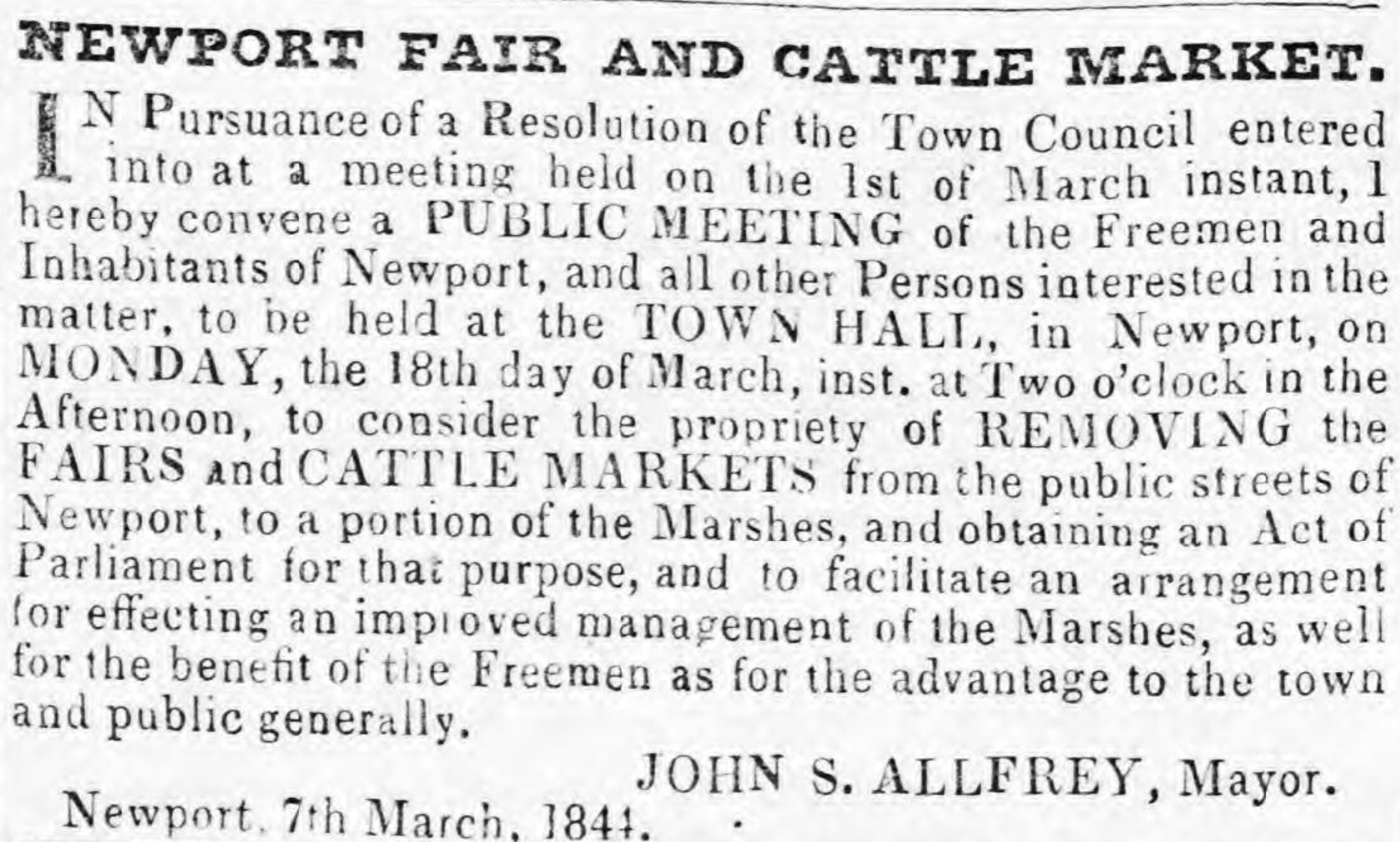

Gold Tops
In the late 1830s and early 1840s, Gold Tops was a sparsely populated area with just a few cottages on land owned by Sir Charles Morgan. The cottages appeared in a couple of adverts giving an idea of what the properties were like and their use.


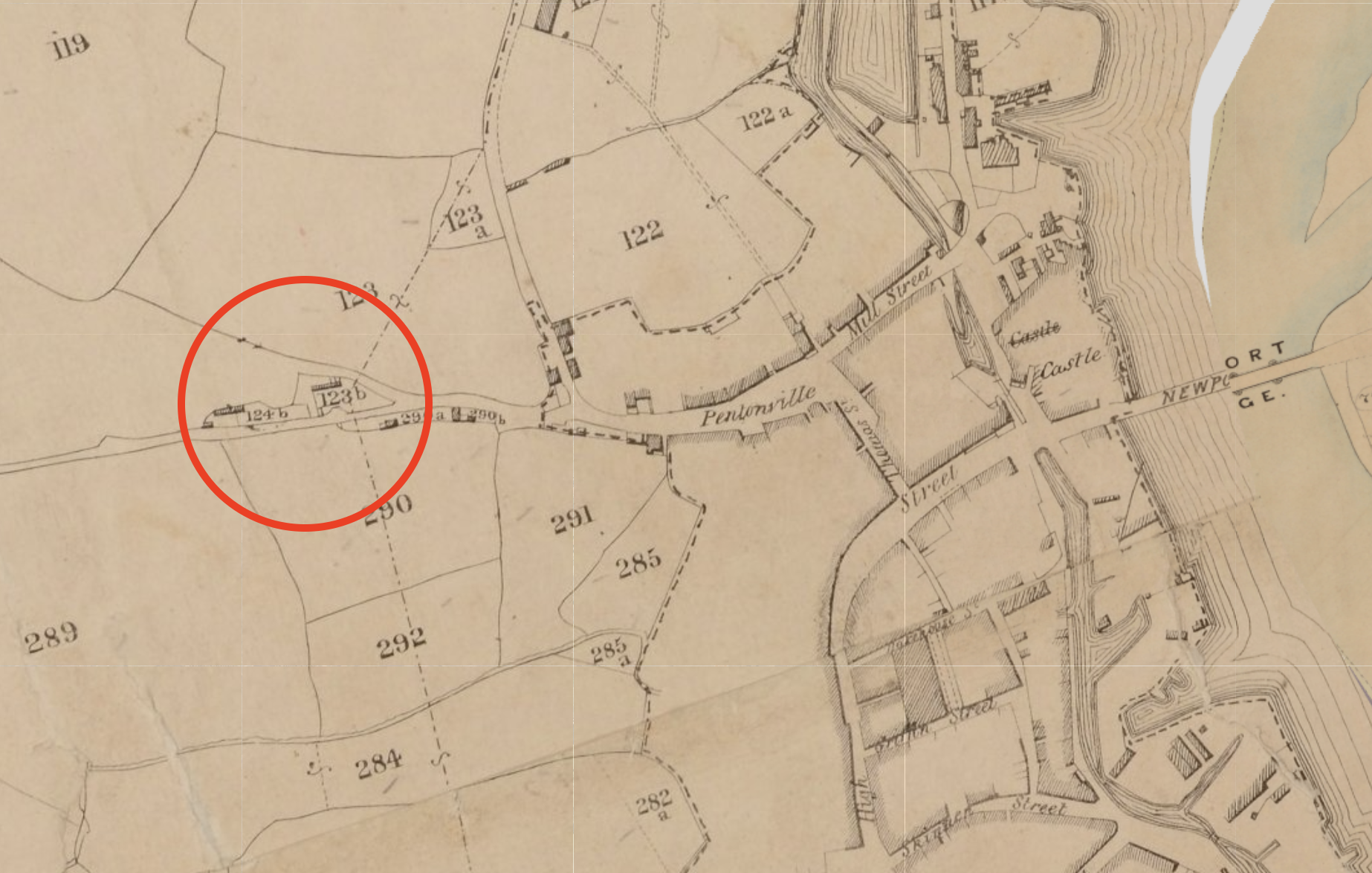
Also in the area at the same time was a notorious beer-house called the Gold Tops. An article in May 1841 mentioned two men with 'Herculean necks' fighting in the 'Bloody Fields' near the beer-house.

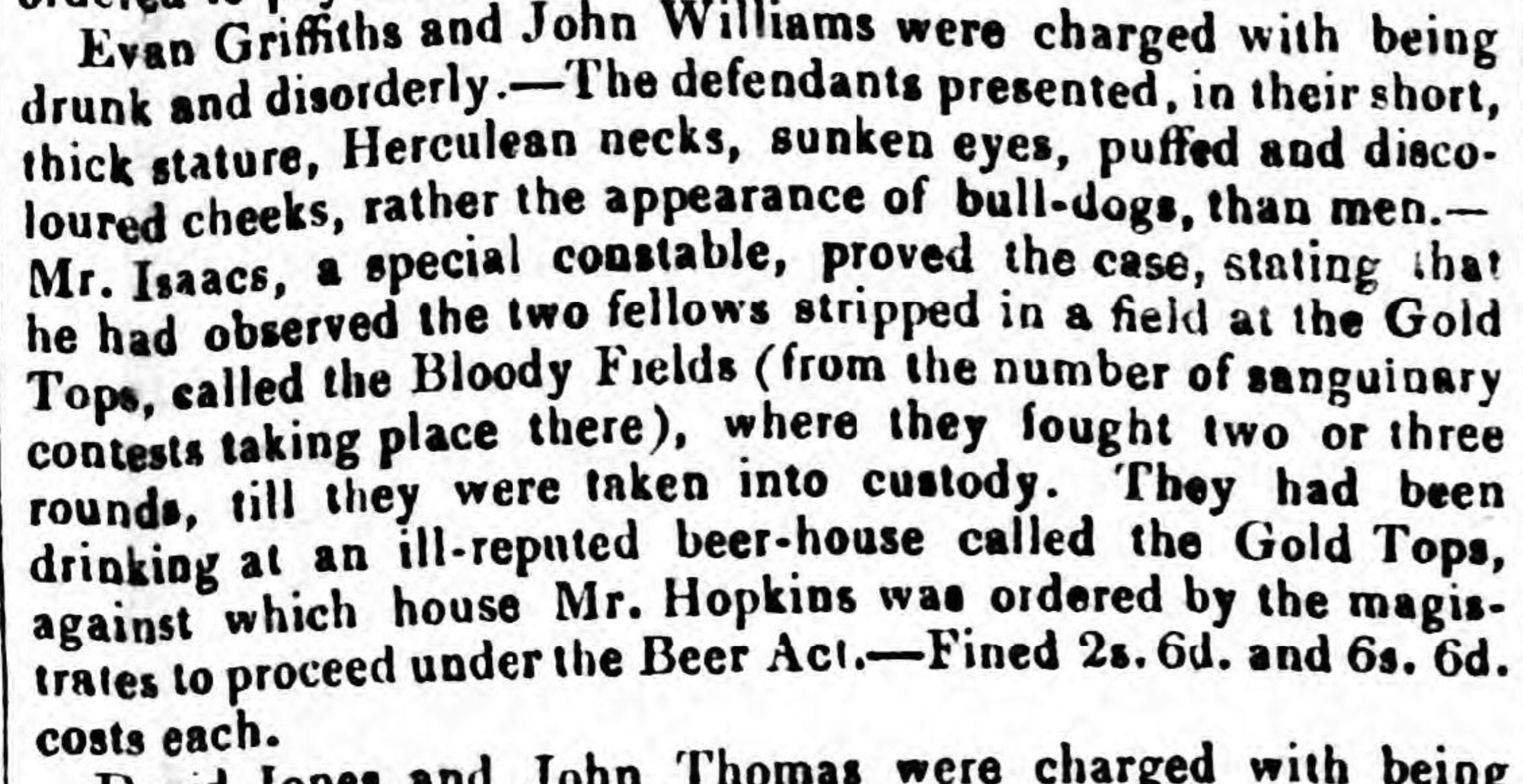
Later that year the pub was in trouble again when the keeper of the beer-house was charged with an offence against the Beer Act fining him around £270 in today's money.

After that, the pub disappears from newspaper records.
An interesting announcement in the Merlin on 24th November, 1855 mentions the a diversion of a footpath through a field called Gold Tops.
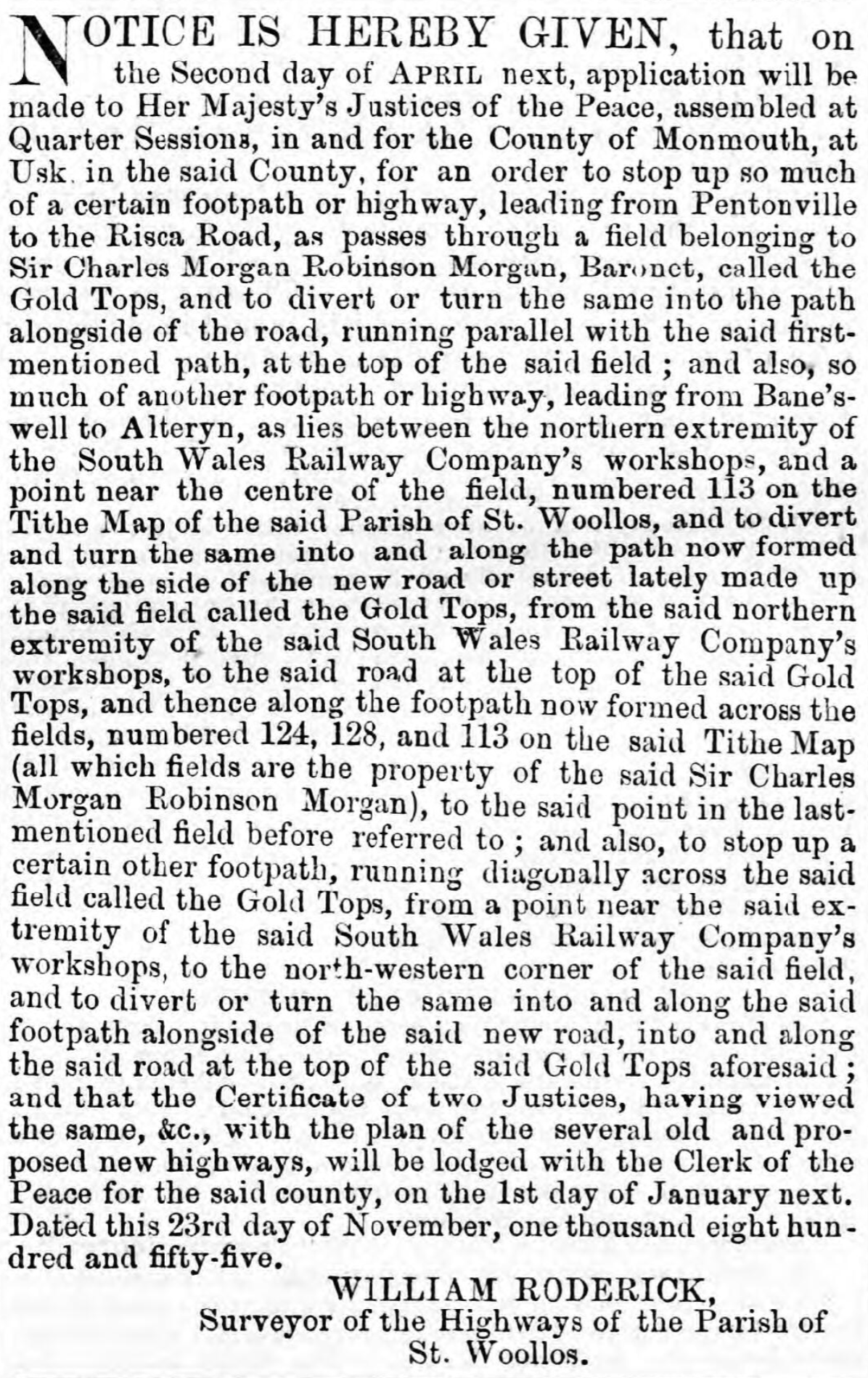
There are a few field numbers mentioned but field 124 does back onto the cottage and potentially beer-house called Gold Tops? Could the area be named after the field? There would still be the question of the origin of the name Gold Tops in terms of the field.
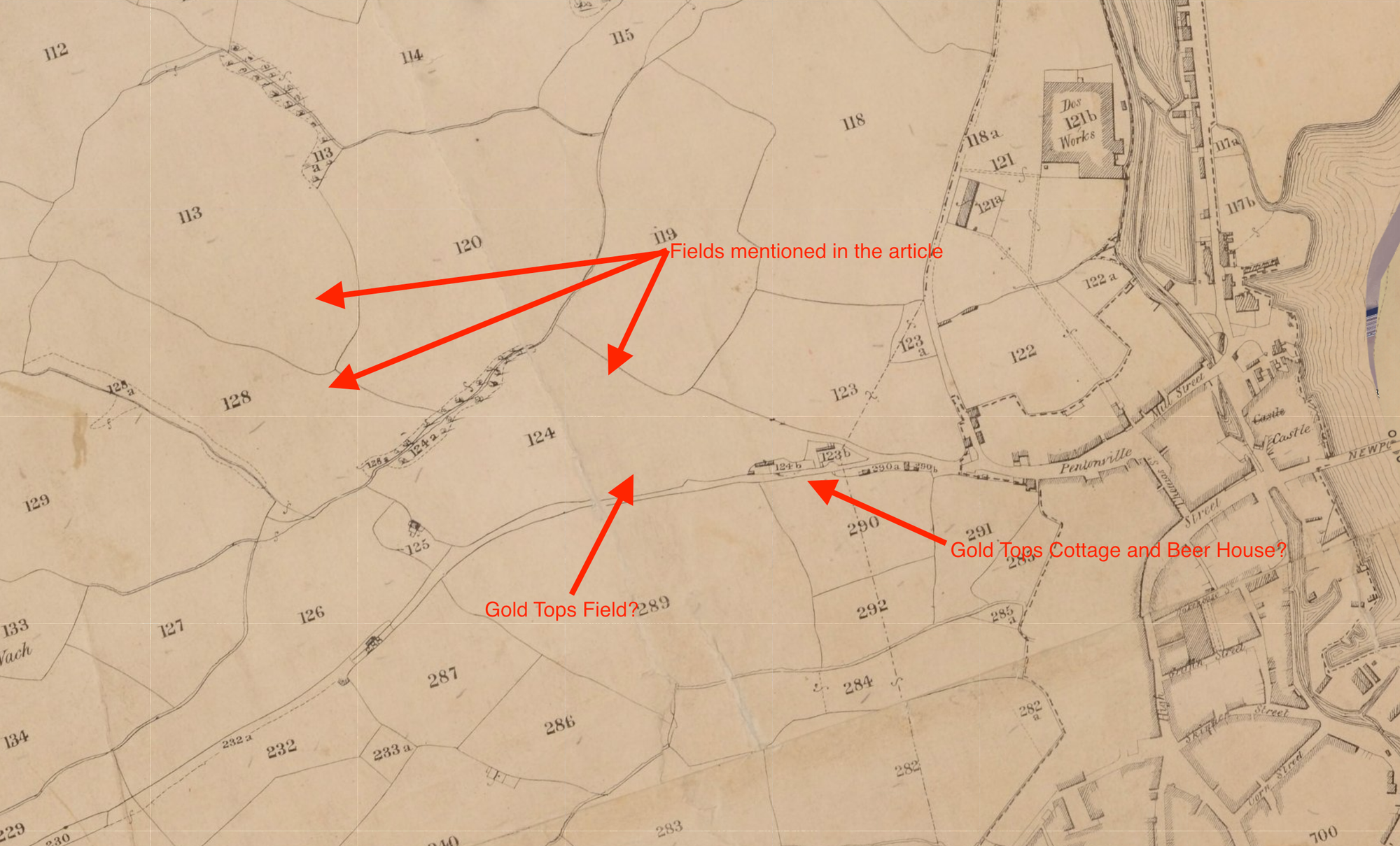
The area of field 124 is mainly where St Mark's Crescent is today.
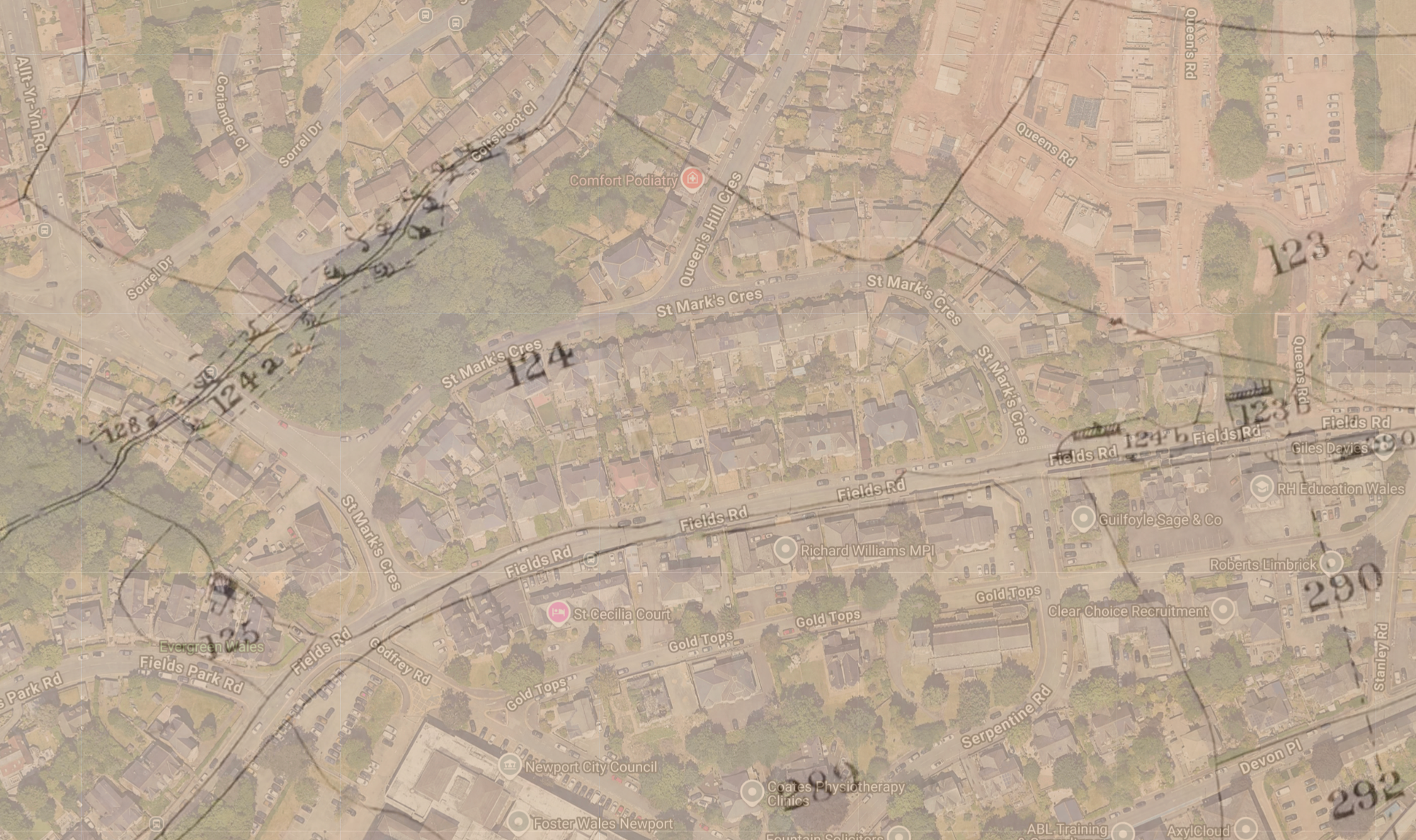

A Beggarly Opinion
One of the begging fraternity, in reply to a question propounded to him by a captain at Pillgwenlly, "half seas over," of whom he solicited and received alms, provided he admitted the amount of his "income," made the following candid and truly pithy acknowledgment —
"I doesn't know what's come to Newport, it's bad times with the tradesfolk, for I used to make my thirty shillings cadging it through the town, when my rounds came that way, and was safe for full thirty shillings."
"Now, I can't get more nor five shillings, and matter a two days about it! It must be awful times with the tradespeople. How I pities them!!!"
Roars of laughter were elicited by the sympathising manner and rich pathos in which the fellow spoke as to the diminution of his "income," and the fallen fortunes of Newport. He should have attributed his "lesser fortune" to the discrimination which now enables our charitable townsfolk to percieve the difference between the really needy and those who trade in begging.- Communicated.
— Monmouthshire Merlin, 26th September, 1846

An Audacious Thief
Last Friday morning, between one and two o'clock, Mrs. Mitchell, wife of Mr. Mitchell, of the Dos Works, who resides in one of the houses on the premises, was awoke by a noise on the outside of the bedroom window, in the back of the house, and on getting up and drawing aside the curtain, she was exceedingly startled to see a man standing on the ledge of the window, who, immediately on her alarming her husband, leaped down to the roof of the back kitchen and made his escape.
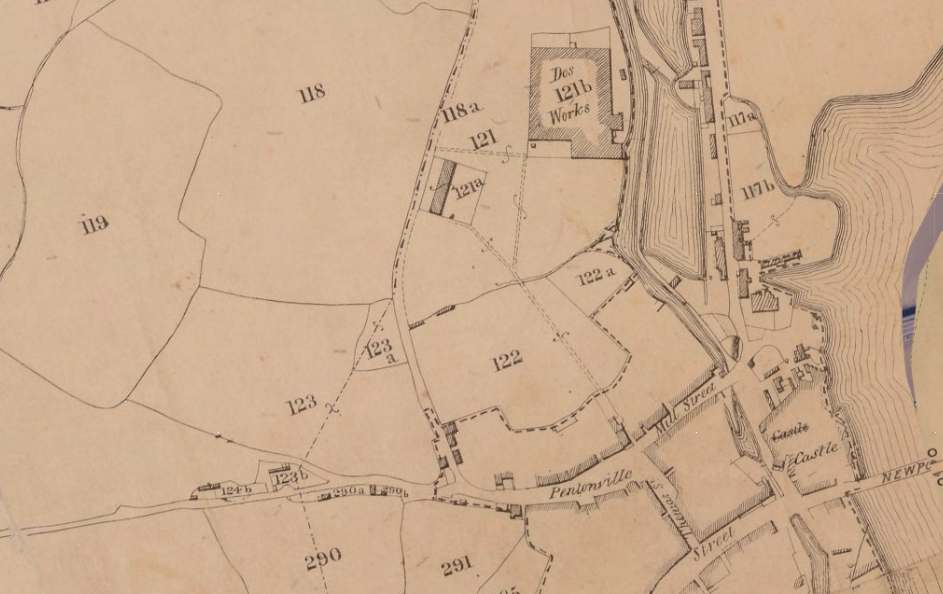
Shortly after, the thief was observed coming down Pentonville very rapidly, by P.C. Bath, who attempted to stop him, but he threw down a large bundle and decamped. The bundle was found to consist of a counterpane, sheet, towels, earthenware, &c.. &c.. which was subsequently found to have been stolen from the yard of a house very near Mr. Mitchell's, in which the thief had placed his shoes and stockings, intending, no doubt, to make that the place of rendezvous for the night, after plundering whatever he might, from the other premises in the row. We understand the fellow is known by the name of the Begging Sailor in this town but he has not been captured.
— Monmouthshire Merlin, 26th September, 1846
It's likely that the houses mentioned in the article were Dos Cottages which would have been the only houses next to the Dos Works. They can be seen as 121a in the tithe map above.
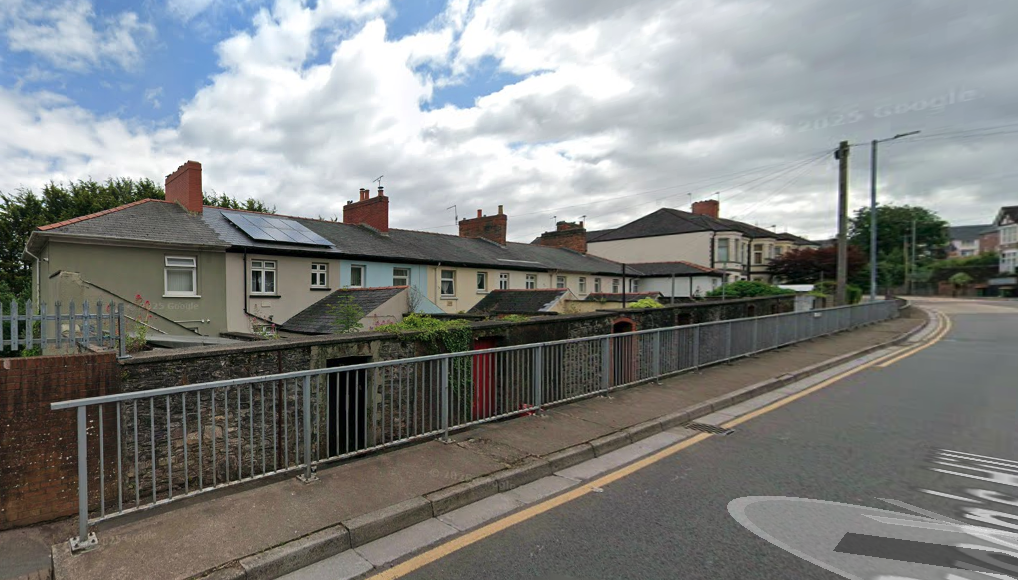

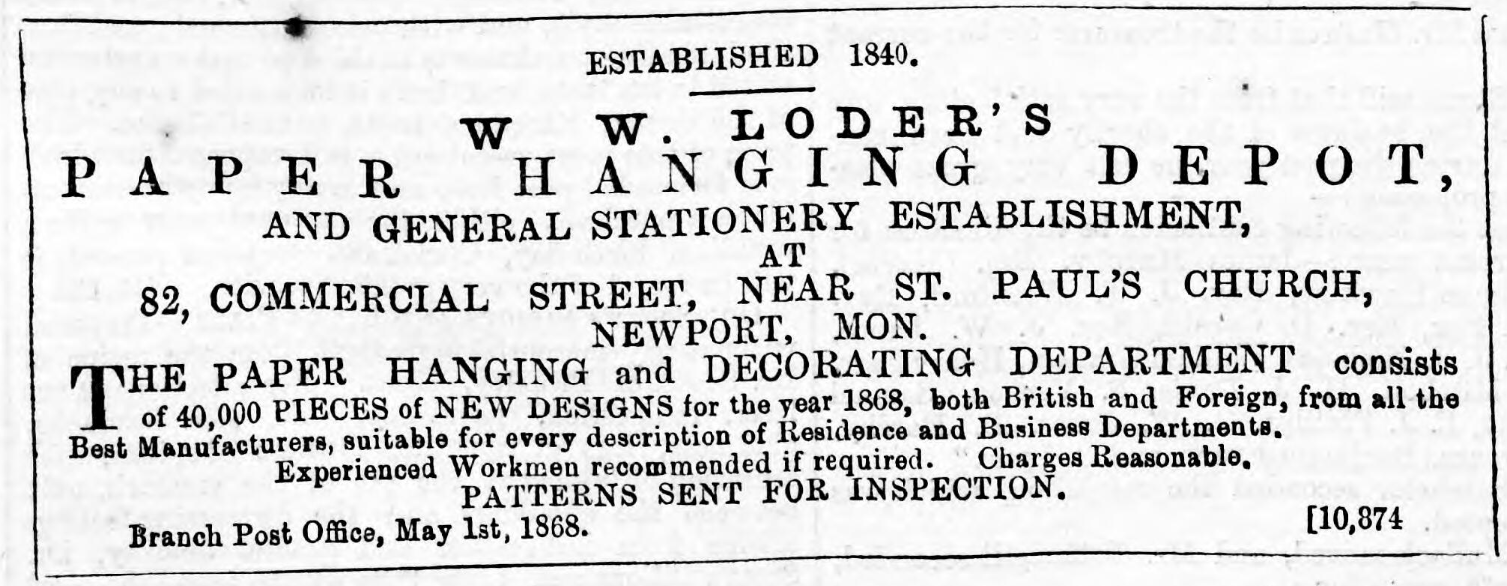


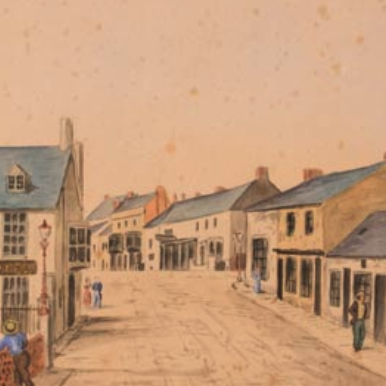
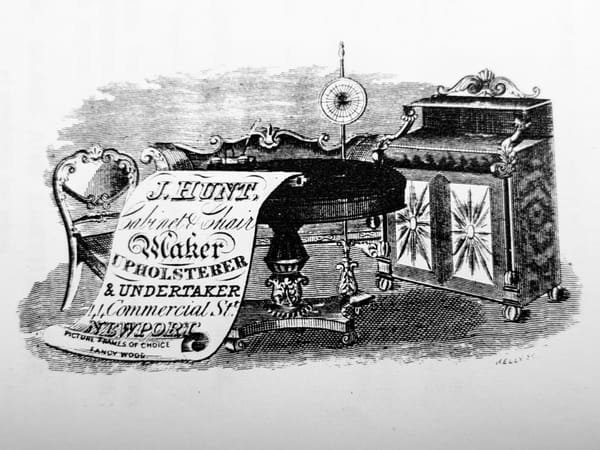
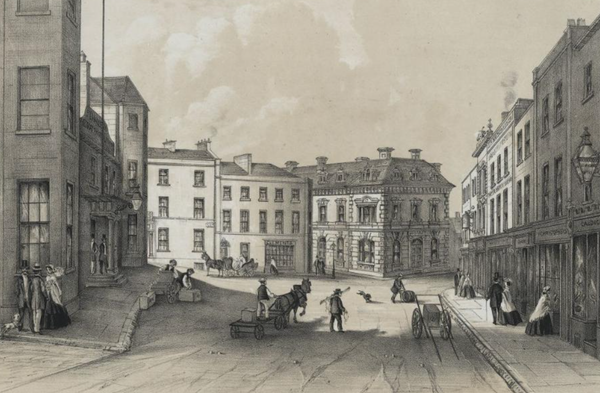
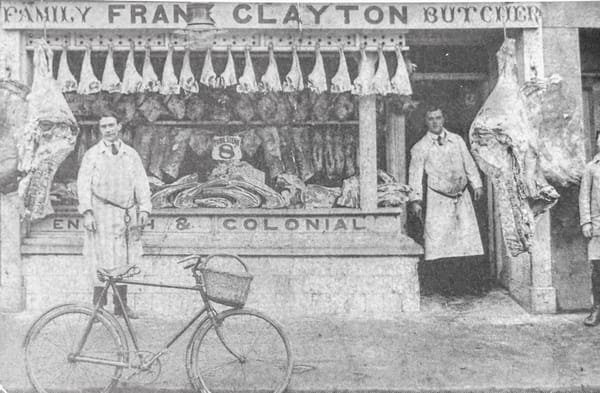
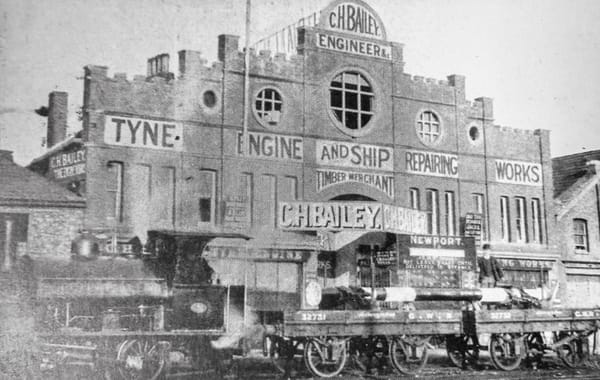

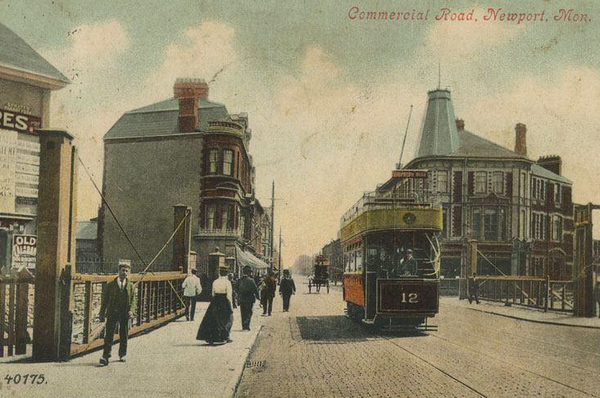
Member discussion